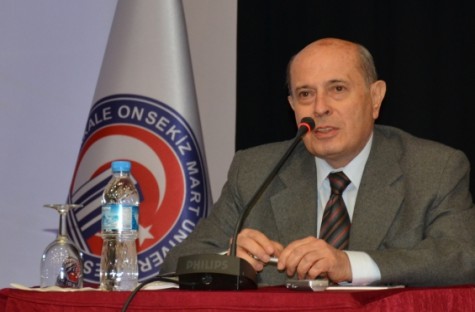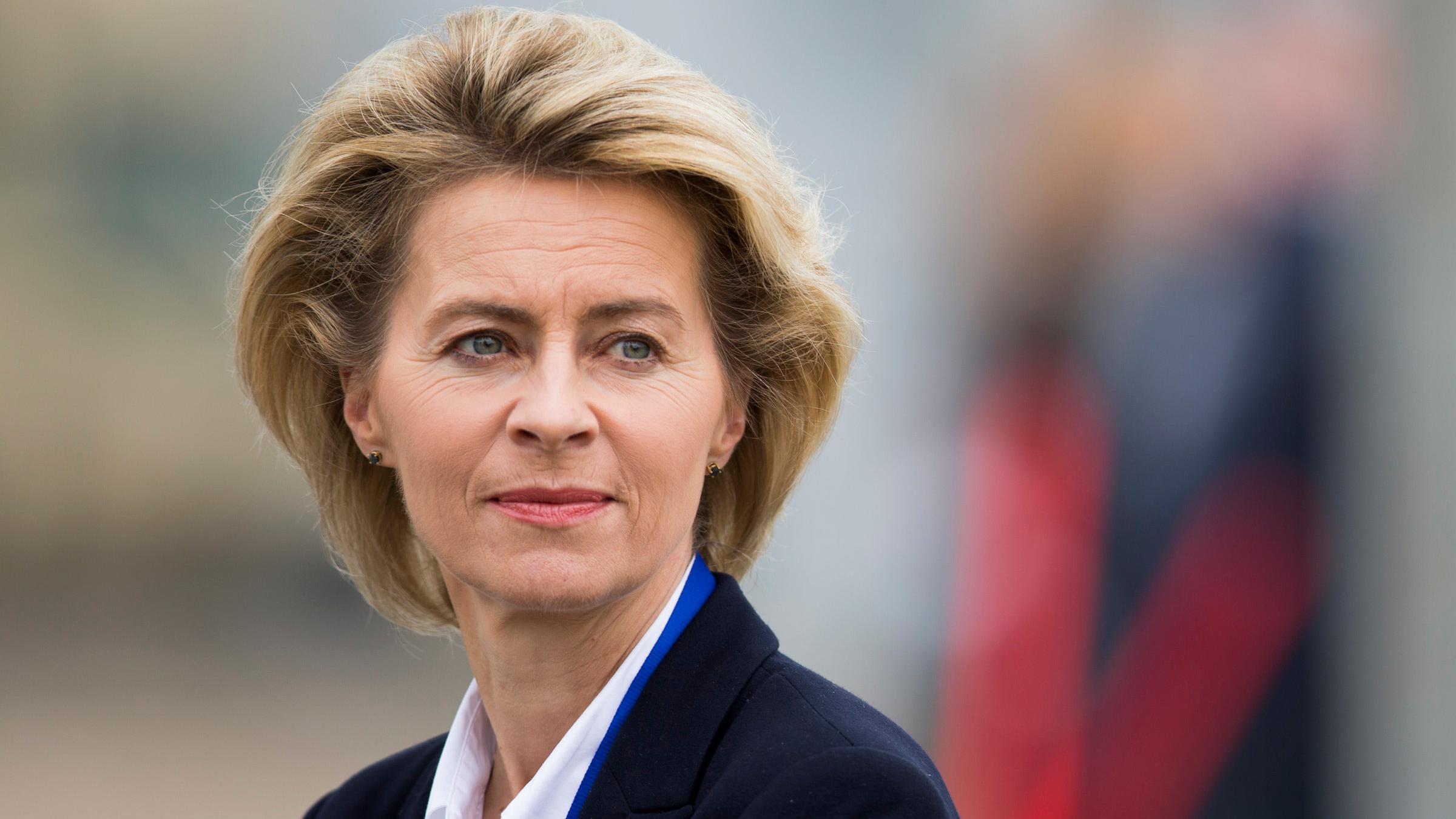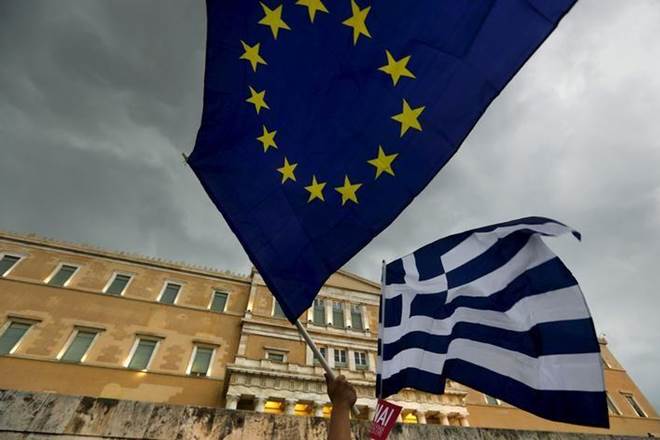
Ömer Engin Lütem
Honorary President, AVİM
* AVIM Honorary President, Ret. Ambassador Ömer Engin Lütem made closing remarks in the international conference entitled “The Armenian Question: Myths and Realities” organized by the Yeni Türkiye Stratejik Araştırmalar Merkezi (New Turkey Strategic Research Center) on May 22-23.
For years Turkey is being the target of criticisms and even accusations about the Armenian Question.
Turkey is rather on the defensive against these criticisms and accusations. However this defensive position does not satisfy the critics and often lays the groundwork for new criticisms.
The adage that ‘the best defense is offence’ is very true. Turkey does not apply this and therefore is subjected to even more criticisms and accusations.
This defensive position led to an opinion that Turkey is wrong and guilty to take root in the Western public opinion.
Additionally, the number of countries criticizing Turkey increased over time.
Along with this defense strategy, Turkey, especially since 2005, made several proposals for the resolution of existing issues with the Armenians. These could be summarized in short as the establishment of a commission of historians, signing of protocols for the normalization of relations, establishment of contact with the diaspora, the approach of “Just Memory” and extension of condolences
The main characteristic of these proposals is the search for reconciliation. For this reason, they should be appreciated and in fact, should be praised. However, this was not the case. Armenia, turned down all other proposals, except the protocols. Other countries somewhat welcomed the protocols and condolences but ignored the rest of reconciliation proposals.
This disregard for Turkey’s sincere efforts for the resolution of issues started to draw negative reaction and President Erdogan himself expressed his discontent on the matter. Deputy Prime Minister Yalçın Akdoğan who made the opening speech of this conference also raised the same issue.
We can infer from this that Turkey’s defensive stance and policy of making reconciliation proposals failed to convince the opposite side and failed to make an impact on their public opinion.
The logical inference from this is the necessity to change the strategy regarding the Armenian question.
What could be the new strategy?
It is necessary to move away from this defensive position, which is the core element of the old strategy, and to adopt a new strategy based on criticizing Armenia and the Diaspora in the same manner as they do.
It is possible to criticize the Armenian side on many subjects.
Foremost among these is the fact that Armenians resort to lies and exaggerations in their version of history.
It is also necessary to point out that Armenians betrayed the Ottoman State, which they were a citizen of, by way of revolts, terrorist acts especially in Istanbul and cooperation with Russia during the First World War, and thus were themselves the main reason for their relocation to another part of the country.
On the other hand, the racist discourse used by the majority of Armenians against Turks is unacceptable.
Additionally, the fact that Armenians are closed to all kinds of reconciliations necessitates criticism. In Armenia and especially in the diaspora, there is a pathological state of mind that stipulates issues with Turkey to remain unresolved and continue, and that indicates that the main objective is to criticize and accuse Turkey. This state of mind is completely against the principal of the peaceful settlement of disputes, which is a widely accepted principle today.
The Nagorno-Karabakh conflict is the foremost event that Armenians should be criticized and even accused for today. Armenia forcibly occupied territories belonging to another country. They caused one million people to leave their homes and become refugees. They committed major massacres such as the Khojaly incident. UN Security Council resolutions were also not implemented on this issue.
Further cooperation with Azerbaijan is needed regarding the Nagorno-Karabakh conflict. Azerbaijan should be assisted not just because of brotherly relations but also due to Turkey’s interests.
Armenians’ tradition to use violence and to resort to terrorism should also be a subject of criticism. The killings of more than 30 Turkish diplomats and their family members about 30 years ago just because they were representing Turkey is an issue that should not be forgotten and should be made sure that it is not forgotten. Considering the fact that an ASALA memorial was erected in Armenia, the heroization of murderers is unacceptable.
Historically, the most inexcusable act made by the Armenians are the atrocities committed by them. The killings of 518.000 people in Eastern Anatolia by Armenians between 1914 and 1921 is a proven fact by Ottoman documents.
The fact that these massacres were not just the result of hatred, animosity and sadism, but also the result of an ethnic cleansing policy by the Armenian Government could also be found in several Armenian sources.
Considering the fact that Armenians try to label the deaths during the resettlement process as genocide and bring their claims into the international arena, Turkey’s efforts to take the status of the people who died as a result of atrocities committed by Armenians into the international arena is normal. Besides being a requirement of the new strategy, this should be seen as a duty out of respect for our martyrs.
As a conclusion, I believe that, at this point, we need a new strategy against Armenian claims and accusations, and would like to say that I see this as a necessity.
© 2009-2025 Center for Eurasian Studies (AVİM) All Rights Reserved
No comments yet.
-
MEETINGS IN THE UNITED STATES
Ömer Engin LÜTEM 13.04.2010 -
CHURCH PROPERTIES AND THE AMERICAN CONGRESS
Ömer Engin LÜTEM 10.04.2014 -
THE FRENCH LAW: THE FIRST STAGE
Ömer Engin LÜTEM 25.12.2011 -
THE RESOLUTION OF THE EUROPEAN PEOPLE’S PARTY - Ömer Engin LÜTEM
Ömer Engin LÜTEM 05.03.2015 -
TURKEY AND THE RUSSIAN BASE IN GYUMRI
Ömer Engin LÜTEM 11.02.2014
-
 EUROPEAN COMMISSION PRESIDENT DISREGARDS DIPLOMATIC COURTESY
EUROPEAN COMMISSION PRESIDENT DISREGARDS DIPLOMATIC COURTESY
Hazel ÇAĞAN ELBİR 27.07.2021 -
EURASIAN UNION’S POTENTIAL AND THE HURDLES ON ITS WAY
Alev KILIÇ 09.12.2012 -
 GREECE, GREEK CYPRIOT ADMINISTRATION AND ARMENIA - COMMONALITIES
GREECE, GREEK CYPRIOT ADMINISTRATION AND ARMENIA - COMMONALITIES
Ali Murat TAŞKENT 01.08.2017 -
 AVİM ON THE ELEVENTH ANNIVERSARY OF ITS FOUNDING
AVİM ON THE ELEVENTH ANNIVERSARY OF ITS FOUNDING
Teoman Ertuğrul TULUN 05.02.2020 -
TAL BUENOS AND TÜLİN DALOĞLU’S INTERVIEWS ON THE 1915 EVENTS
AVİM 01.07.2015
-
25.01.2016
THE ARMENIAN QUESTION - BASIC KNOWLEDGE AND DOCUMENTATION -
12.06.2024
THE TRUTH WILL OUT -
27.03.2023
RADİKAL ERMENİ UNSURLARCA GERÇEKLEŞTİRİLEN MEZALİMLER VE VANDALİZM -
17.03.2023
PATRIOTISM PERVERTED -
23.02.2023
MEN ARE LIKE THAT -
03.02.2023
BAKÜ-TİFLİS-CEYHAN BORU HATTININ YAŞANAN TARİHİ -
16.12.2022
INTERNATIONAL SCHOLARS ON THE EVENTS OF 1915 -
07.12.2022
FAKE PHOTOS AND THE ARMENIAN PROPAGANDA -
07.12.2022
ERMENİ PROPAGANDASI VE SAHTE RESİMLER -
01.01.2022
A Letter From Japan - Strategically Mum: The Silence of the Armenians -
01.01.2022
Japonya'dan Bir Mektup - Stratejik Suskunluk: Ermenilerin Sessizliği -
03.06.2020
Anastas Mikoyan: Confessions of an Armenian Bolshevik -
08.04.2020
Sovyet Sonrası Ukrayna’da Devlet, Toplum ve Siyaset - Değişen Dinamikler, Dönüşen Kimlikler -
12.06.2018
Ermeni Sorunuyla İlgili İngiliz Belgeleri (1912-1923) - British Documents on Armenian Question (1912-1923) -
02.12.2016
Turkish-Russian Academics: A Historical Study on the Caucasus -
01.07.2016
Gürcistan'daki Müslüman Topluluklar: Azınlık Hakları, Kimlik, Siyaset -
10.03.2016
Armenian Diaspora: Diaspora, State and the Imagination of the Republic of Armenia -
24.01.2016
ERMENİ SORUNU - TEMEL BİLGİ VE BELGELER (2. BASKI)
-
AVİM Conference Hall 24.01.2023
CONFERENCE TITLED “HUNGARY’S PERSPECTIVES ON THE TURKIC WORLD"









